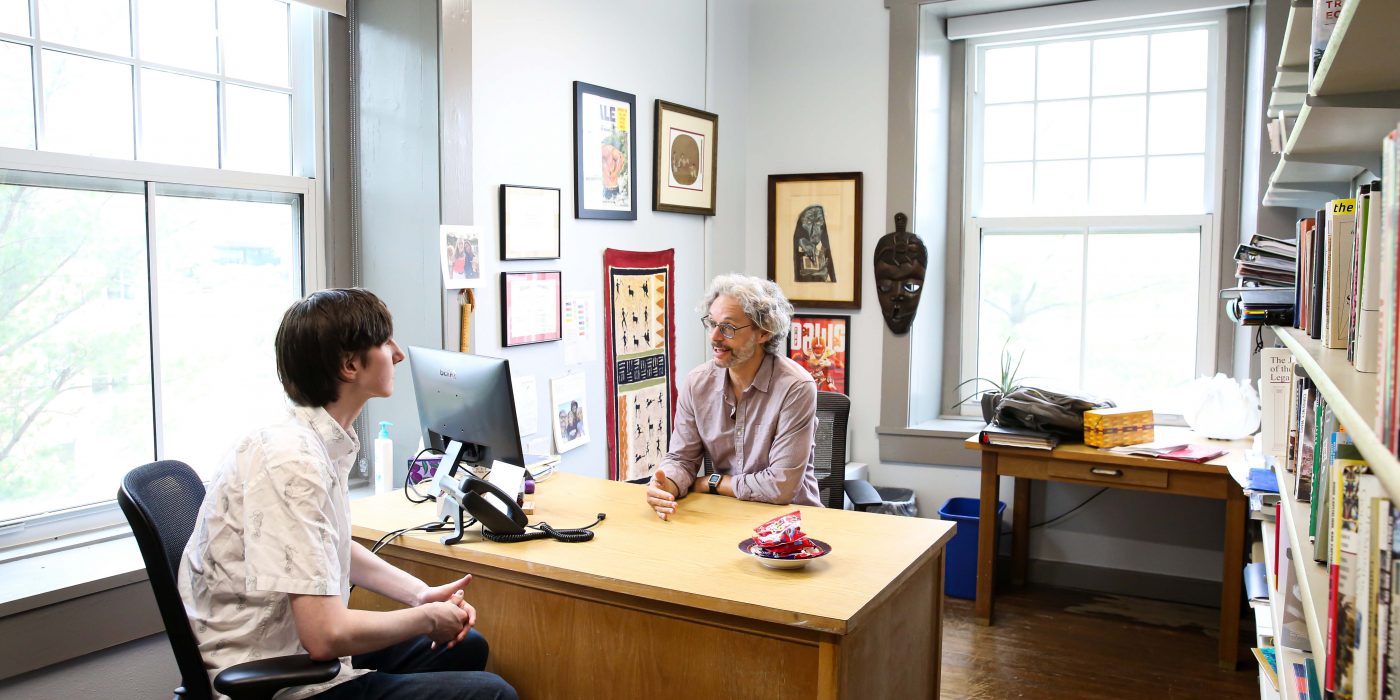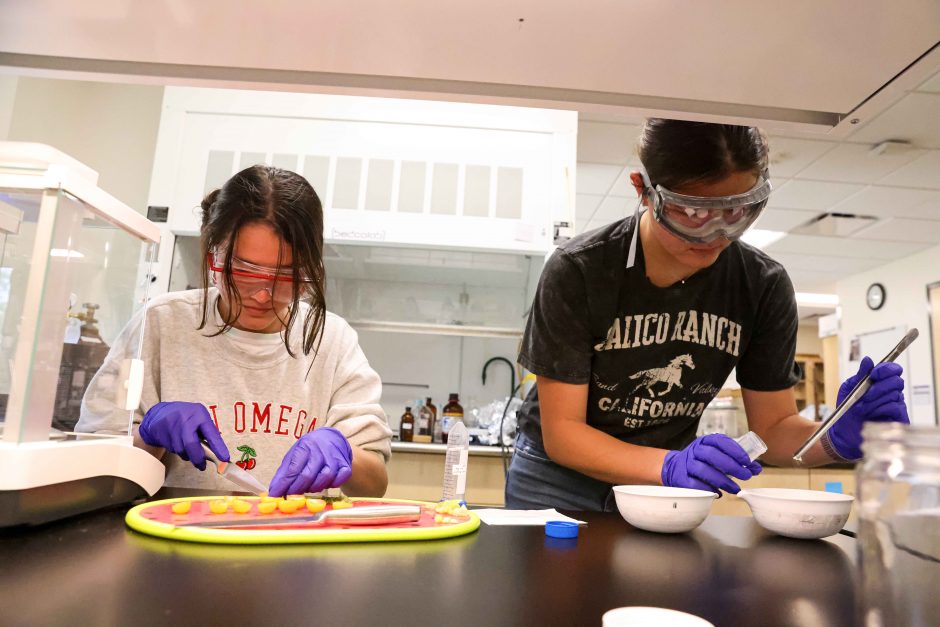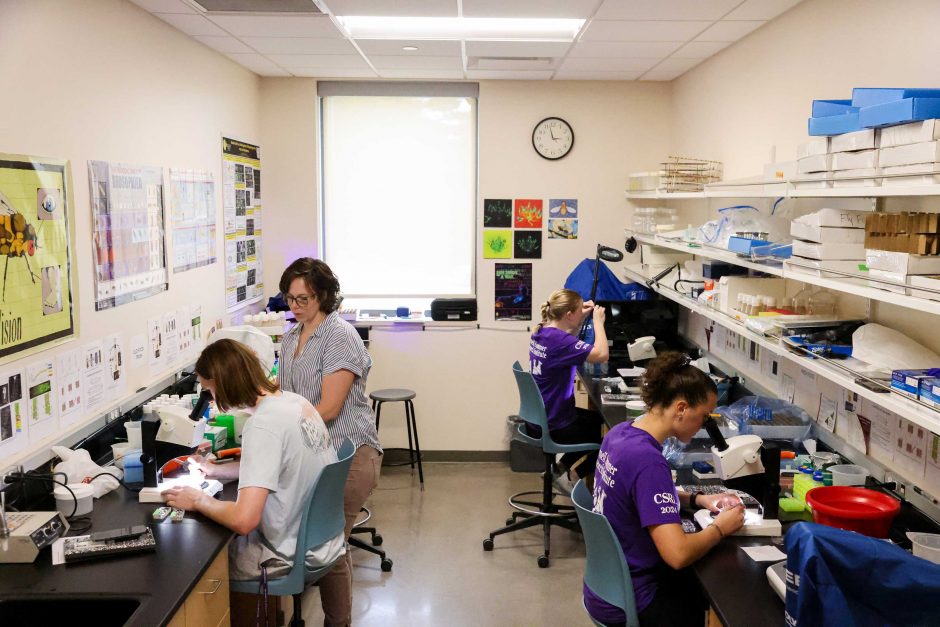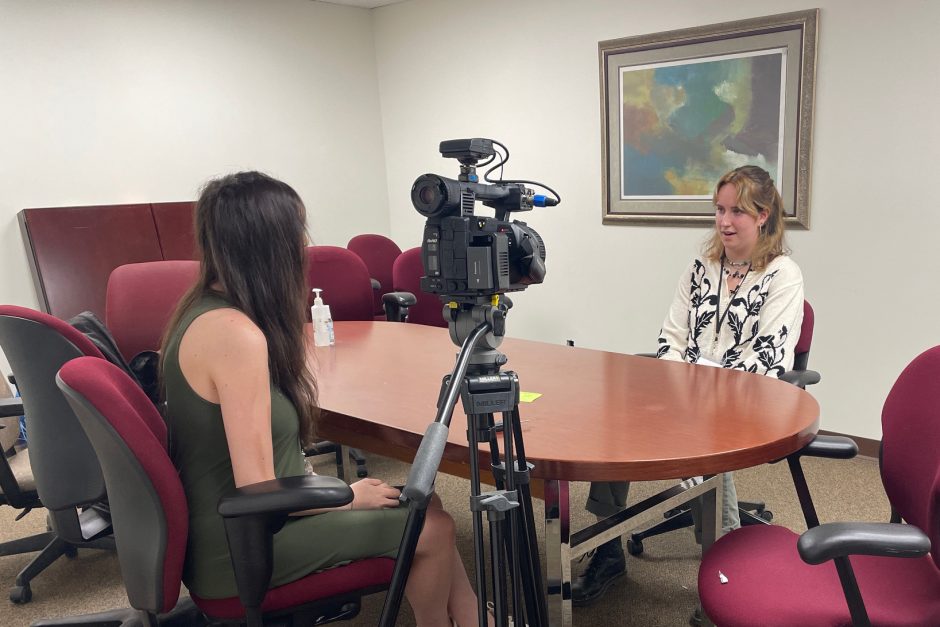Cornell College students investigate AI’s impact on income inequality
News about artificial intelligence or AI is just about everywhere you look–think Siri, facial recognition, ChatGPT, autocorrection, and other machine learning applications.
So, this summer two Cornell College students are putting it at the center of their research.
Rising seniors Indigo Meads and Bryce Scott are working with David Joyce Professor of Economics and Business Todd Knoop to explore the impact of AI on income inequality.
“It’s hard to make predictions, but we want to get an idea of how AI tools are going to impact income inequality in the coming years. What do the scholars think? And what kind of predictions can we make about whether AI is going to exacerbate or alleviate income inequality?” Meads said.
“We want to research which types of jobs are going to be at risk and which types of jobs are going to be fine and where we see the economy shifting with regards to income inequality and wage gaps,” Scott added.
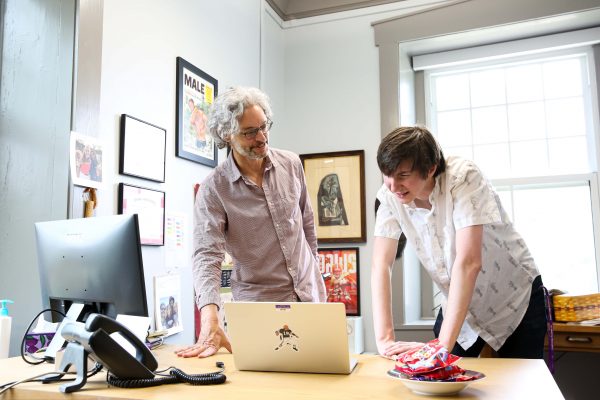
Scott and Meads both reached out to Knoop about a research opportunity for the summer and initiated the project on this topic for the eight weeks of the Cornell Summer Research Institute (CSRI). Knoop, who has written several books, including one on income inequality, is thrilled about the team of two taking on this topic.
Knoop says the literature review that will come out of this research won’t necessarily have a single conclusion. Instead, it’ll look at what the experts are saying and where future researchers should focus their time. But they already know one thing for sure– this technology will impact the future of economics.
“AI is a computer science tool, but its implications are primarily economic in the sense that AI is either a substitute or a complement to labor,” Knoop said. “It can be a substitute to labor in that it can replace workers, or it can complement to labor–meaning it can make workers more productive. Creating substitutes and compliments to labor is a lot of what economics is about, particularly labor economics. I think anyone interested in the history of humanity, or in economic history, will see that it has largely been driven by technological innovation.”
These two rising seniors are also interested in how it will impact their future. Scott is a finance major and Meads is an international relations and economics and business major. Both are making plans for their careers and lives after Cornell.
“I’m really thinking about the next five, 10, 15 years,” Meads said. “I think it’s important to have an understanding of the differences AI could make in those years. It’s going to persuade me to choose one path or another, like grad school for a certain field.”
It’s a big topic with a lot of arguments and discussion and new applications around every corner.
And asking ChatGPT for an answer to their research questions isn’t an option for them.
“There seems to be a lack of urgency in adapting to the presence of AI. If we’re more willing to learn and more open-minded, I think we are going to be able to help others and teach others the benefits of AI,” Scott said.
Scott is conducting his research from his home in Qatar, while Meads is participating in all of the CSRI events. Both are building their resumes and enjoying their eight weeks of research.
“I’ve loved it, every bit of it. I’ve spoken to a lot of my mates at bigger universities, and I tell them about my research and none of them quite believe I’m doing research, first because I’m not physically at the college and second because a lot of times it’s a dog fight to get these positions due to lack of space,” Scott said. “I’ve seen a huge development, professionally, in doing CSRI. Not only have I learned how to research properly, but I have crafted a professional resume that will help further me in my career.”
We don’t need to ask ChatGPT about the value of undergraduate research in college, these two students and Knoop are seeing it firsthand.
Seventy-five students are studying a variety of topics during CSRI. The institute wraps up on July 14.
Header photo: Indigo Meads (left) meets with Professor Todd Knoop. Bryce Scott (not pictured) is participating in the research process online as he investigates the topic from his home in Qatar. Photo by Megan Amr.

